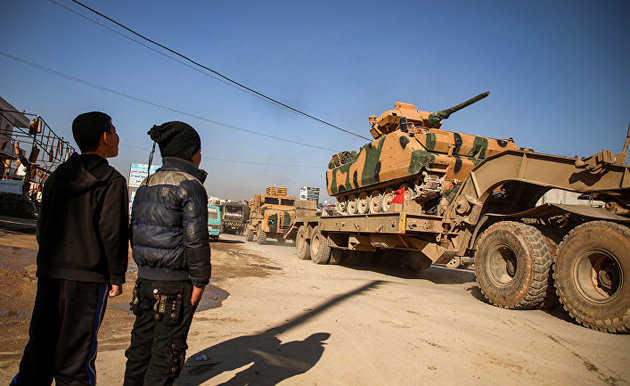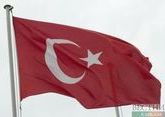There is a stalemate in Syria's Idlib governorate: President Bashar Assad's forces are approaching its capital to drive out terrorist groups and forces of the armed Syrian opposition; Damascus has already took over the strategically important cities Maaret al-Numan and Saraqib. Assad’s offensive does not suit Turkey, whose military, along with the Russians, monitor the situation in the Idlib de-escalation zone; recently several Turkish soldiers have been killed by Syrian army shellfire, which only complicated the situation.
Russian and Turkish experts told Vestnik Kavkaza about what to expect as tensions escalate in Idlib.
Political scientist Orhan Gafarli, speaking with the correspondent of Vestnik Kavkaza, stressed that the situation in Idlib will also depend on Russia's actions. "Ankara expects Moscow to propose a plan to reduce tensions, therefore there are unlikely to be any major clashes by the end of the week," he said.
The expert recalled that Idlib where 4 million people live has a border with Turkey, which means the threat of a new wave of mass migration of Syrians to Turkey in the case of large-scale battles. "According to various estimates, there are 20-70 thousand militants of various groups, including terrorist organizations and the armed Syrian opposition, in Idlib. Any new military conflict in Idlib will make 2-3 million local residents to migrate to Turkey. Assad’s seizure of Idlib will create very serious state and humanitarian problems for Turkey, therefore, Ankara cannot and will not allow such an outcome," Orhan Gafarli explained.
The political scientist recalled the currently existing scenarios for solving the Idlib problem. "Prior to the last presidential meeting between Putin and Erdogan (on January 8), it was assumed that a security zone would be created in the northern part of Idlib, where civilians could go to during clashes. However, Assad has begun military hostilities, and now it's clear that neither Sochi, nor Astana agreements are working, some new roadmap is needed. At the same time, Turkey has no motive to fight against Assad, Turkey does not want this," Orhan Gafarli concluded.
Senior Lecturer of the Department of Political Science at the Higher School of Economics of the National Research University, expert of the Russian International Affairs Council Grigory Lukyanov, agreed that there is no military solution to the Idlib conflict. "Although the Syrian army demonstrates a readiness for a military solution and a fairly high coherence, this does not solve the Idlib conflict in the long run. The fact is that Idlib is not only armed groups, but also a large number of civilians who are configured enough anti-government," he explained.
"In this regard, the Idlib conflict has no military solution, it must be solved politically. The mechanisms created by Russia and Turkey were called upon to launch this political dialogue between Damascus and the opposition in Idlib. If a military solution prevails, it will only create new risks for the process of political settlement," the senior lecturer at the Department of Political Science said.
Russia's politics in Syria will not change. "On the one hand, Russia has always proceeded from the fact that the Syrian conflict can only be solved politically. It will continue to act as a mediator between Turkey and Syria and maintain the agreements that were reached in September 2018 by the presidents of Russia and Turkey," Grigory Lukyanov said.








